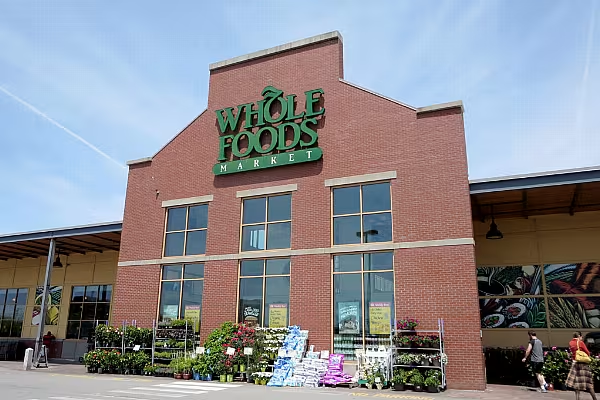Patient real estate investors stand to gain from the fears of disruption such as the one that rattled the grocery industry after Amazon’s takeover of Whole Foods, according to MetLife Inc.
The narrative about the death of brick-and-mortar retailers is likely overdone, MetLife Investment Management said in a report released Thursday. High employment in the industry as well as strong consumer spending show that demand may remain strong, the authors said. Amazon’s threat might drive off some “skittish” investors, leaving the rest with the prospect of better returns.
“There are actually several store closures in many markets across the US. But for us, that’s not reflective of a broad-based decline in retail demand but rather a redistribution of it,” Adam Ruggiero, head of real estate research at MetLife Investment Management, said in a phone interview. “We’re still facing a lot of competition in trying to acquire top-quality equity real estate as well as originating commercial mortgages.”
As some investors fall out of the buyer pool, “that’s a benefit for us because it might result in more-favorable pricing,” he said.
Major Acquisition
Amazon acquired Whole Foods last month for more than $13 billion, and its price cuts at the grocery chain sparked fears of intensified competition. MetLife said the e-commerce giant’s push into physical retail is proof of the industry’s strength.
Amazon’s online grocer “never really achieved the kind of market penetration that I suspect they intended,” Ruggiero said. “I think the ultimate conclusion that they reached was, in order to play the kind of role in the grocery industry that they want to, they have to have a brick-and-mortar presence.”
Amazon’s entry initially threatens higher-end, organic grocers, MetLife said, and middle-market companies such as Kroger probably won’t see an impact for years. Some high-quality malls will continue to do well, according to the report.
The researchers acknowledged that population shifts have hurt retail in some areas. Younger people are moving to bigger cities, bolstering retail in those regions, and that can hurt consumer spending in the towns they’re leaving behind.
“The sector continues to offer many opportunities to those who recognise how shifting consumer spending patterns and the migration of the US population are changing the retail landscape,” the New York-based insurer said in the report.
News by Bloomberg, edited by ESM. Click subscribe to sign up to ESM: The European Supermarket Magazine.














